Abstract
A variable-interval schedule arranged food reinforcement for key pecking by pigeons on a single operandum at two rates, corresponding to two classes of reinforced interresponse times ranging from 1.5 to 2.5 sec and from 3.5 to 4.5 sec. The scheduled reinforcement rate for the higher component response rate was constant and equivalent to that of a variable-interval 4-min schedule. The scheduled reinforcement rate for the lower component response rate varied from zero to over 100 per hour. The number of occurrences of the constant component response rate varied inversely with the reinforcement rate for the variable component. This result, by definition a concurrent reinforcement interaction, or contrast, was the combined effect of two time-allocation functions, which together determine mean response rate: the time allocated to both component rates as a function of the total reinforcement rate, and the time allocated to a particular component rate as a function of the percentage of reinforcements for that component. The present experiment reveals a further parallel between the controlling relations for free responding on a single operandum and those for choice between two operanda; in each case, a concurrent reinforcement interaction can be found that corresponds to matching.
Full text
PDF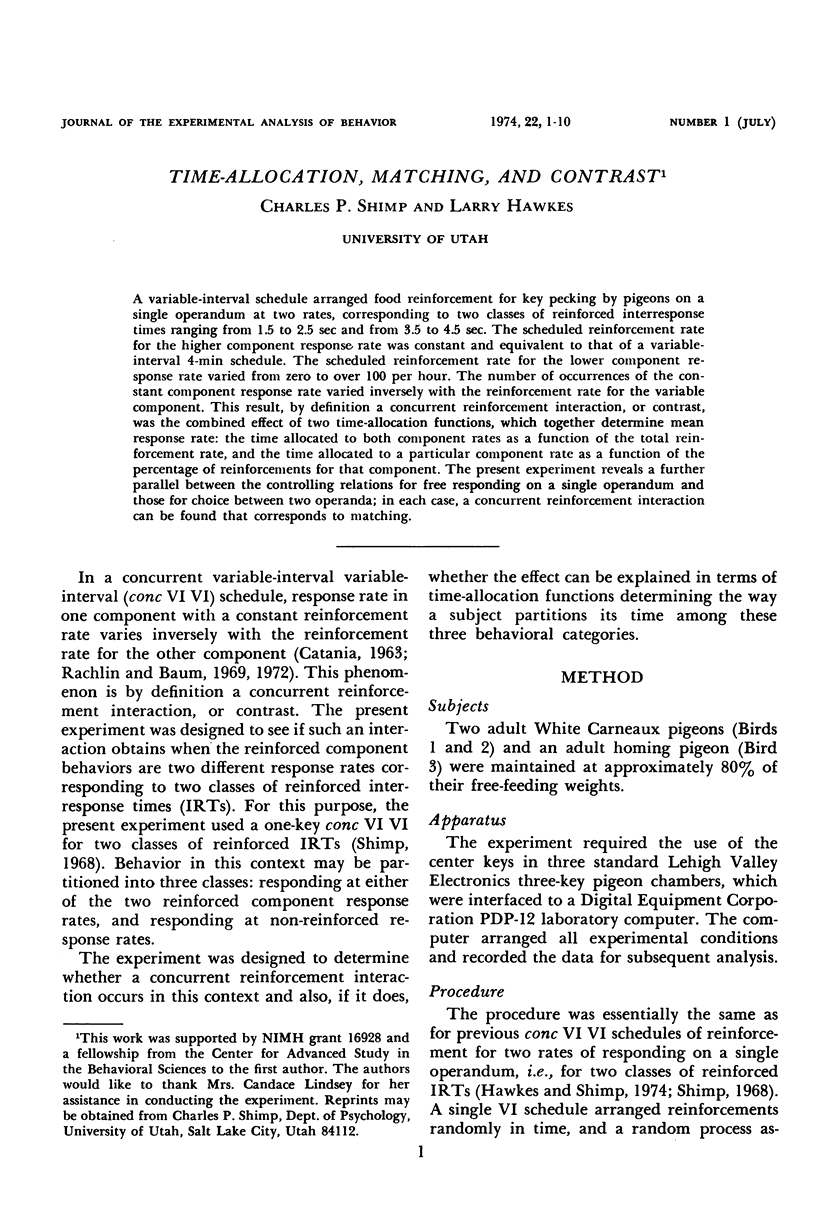
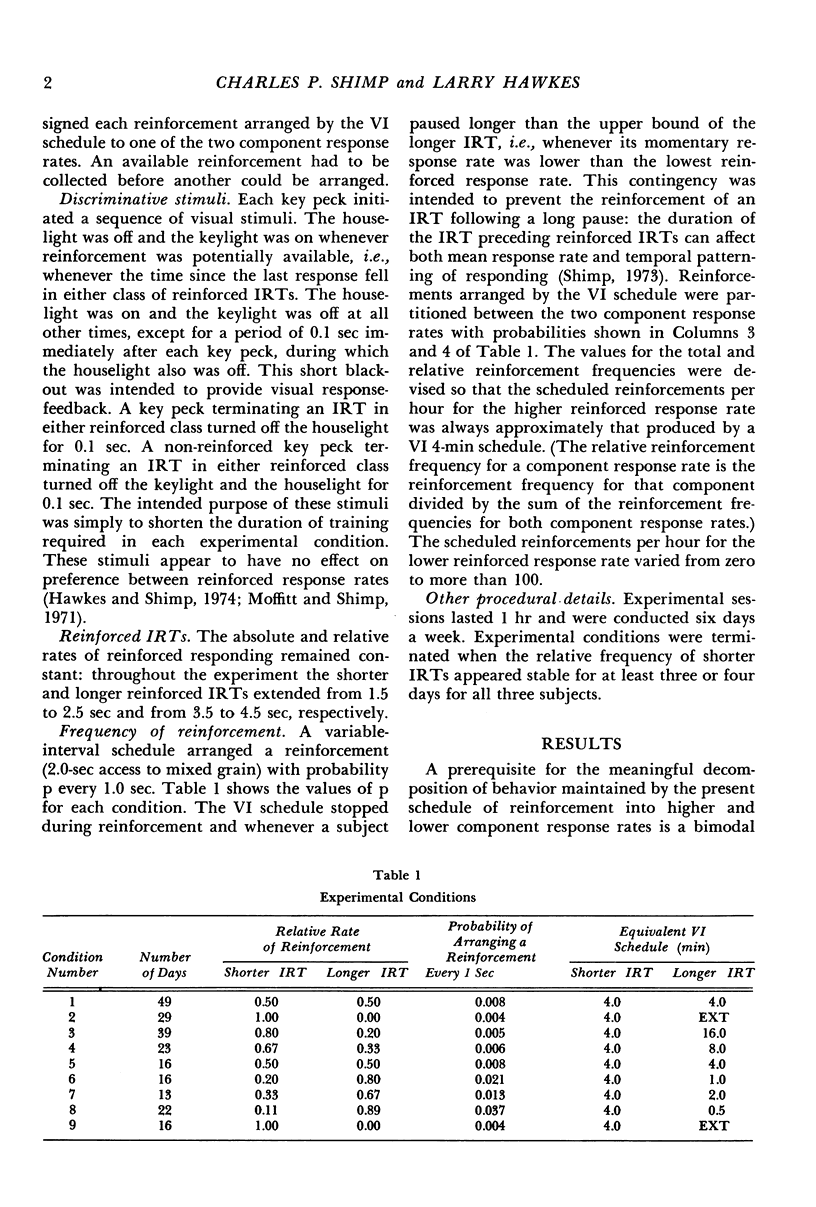
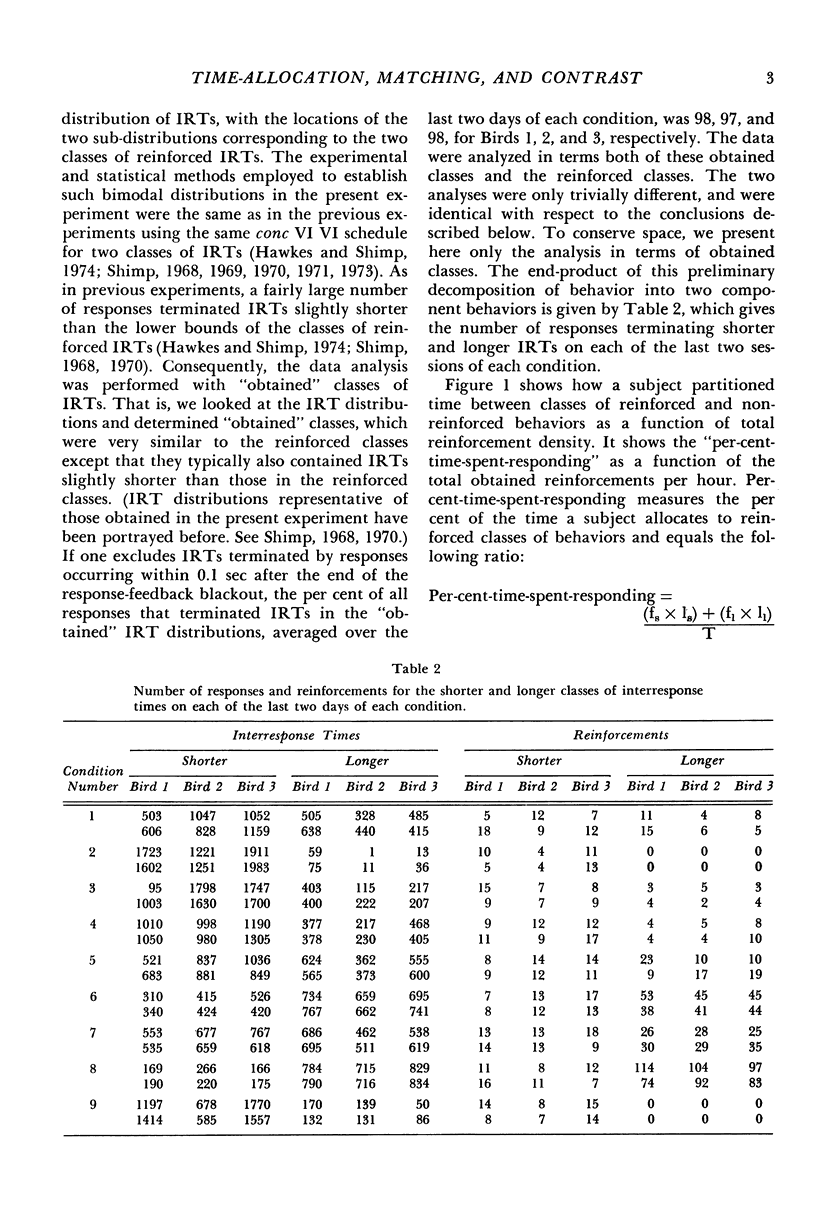
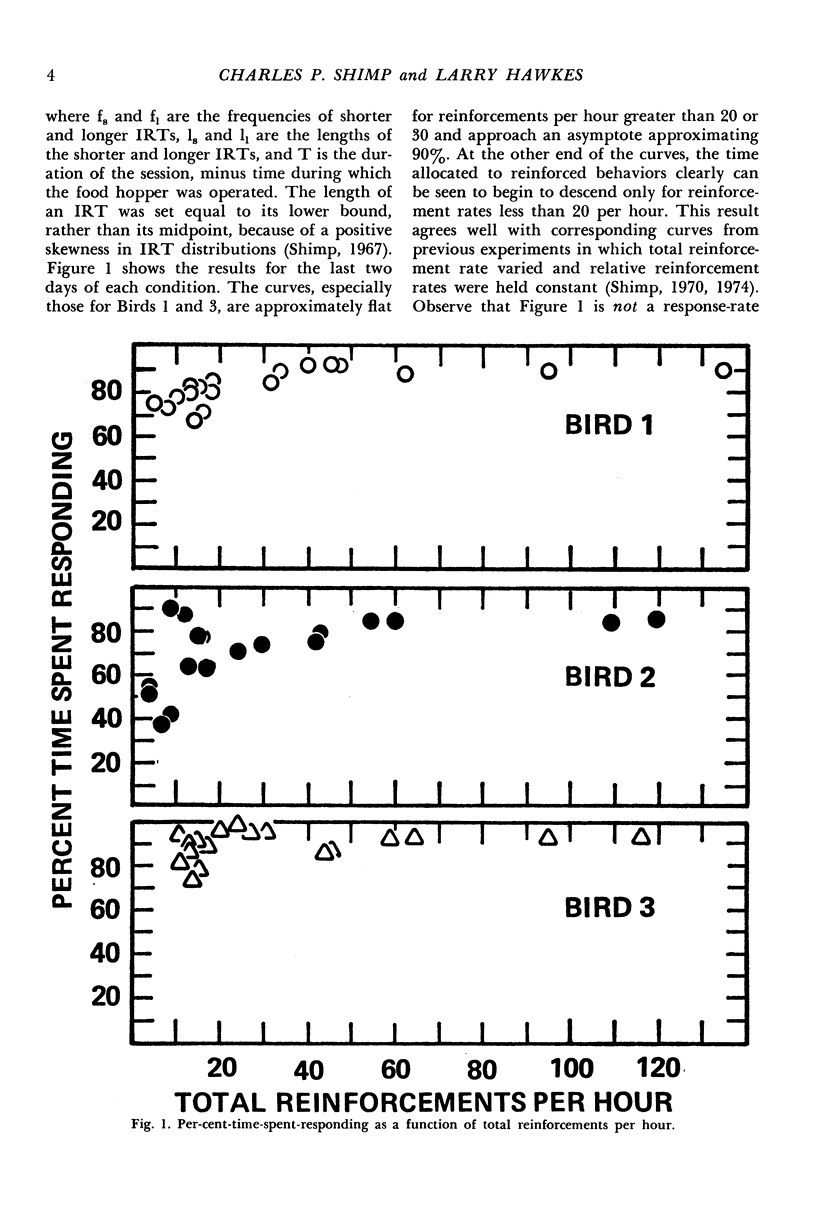
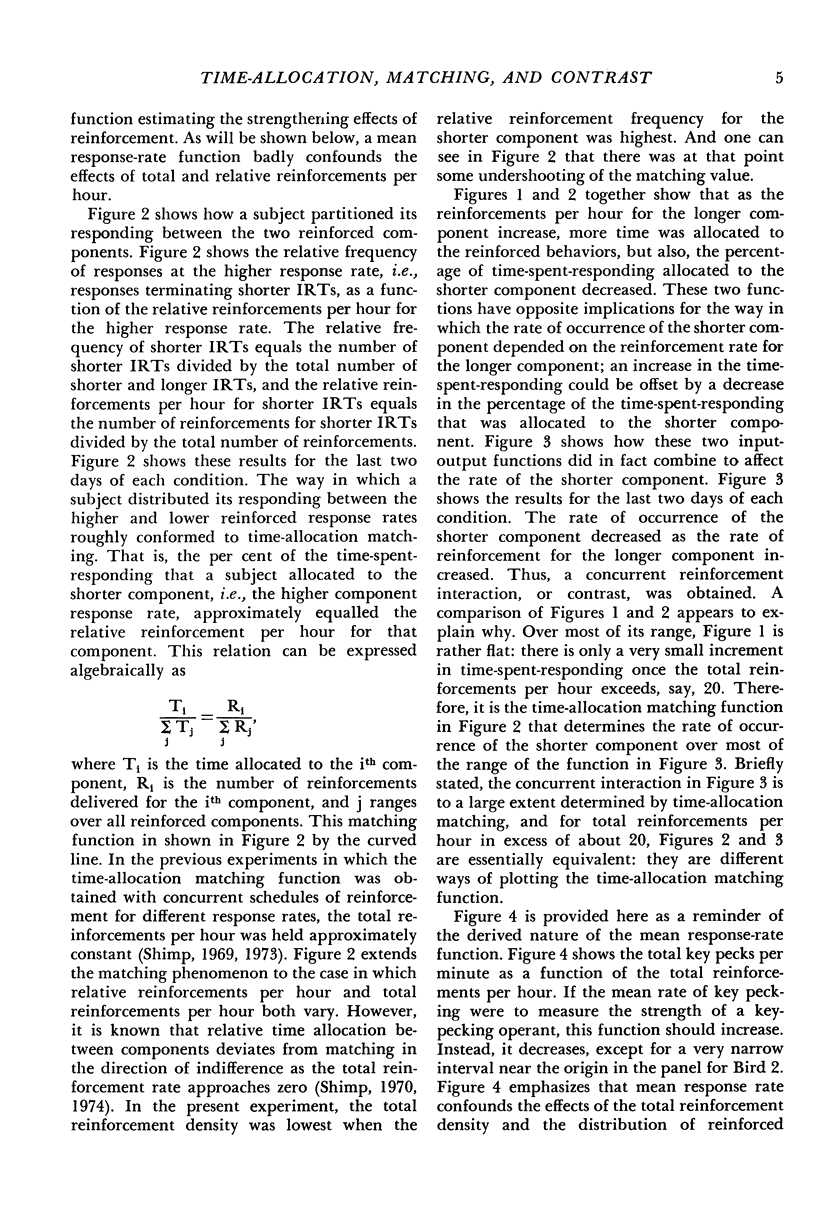
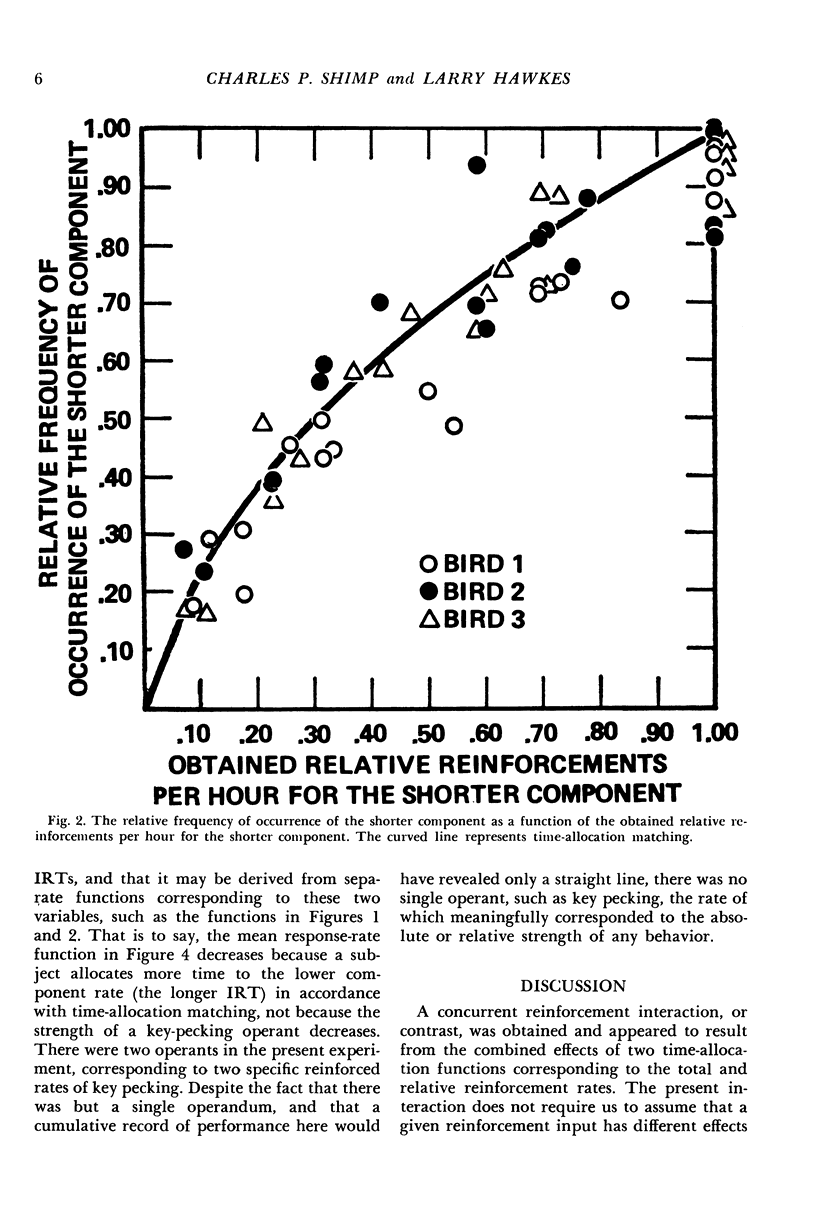
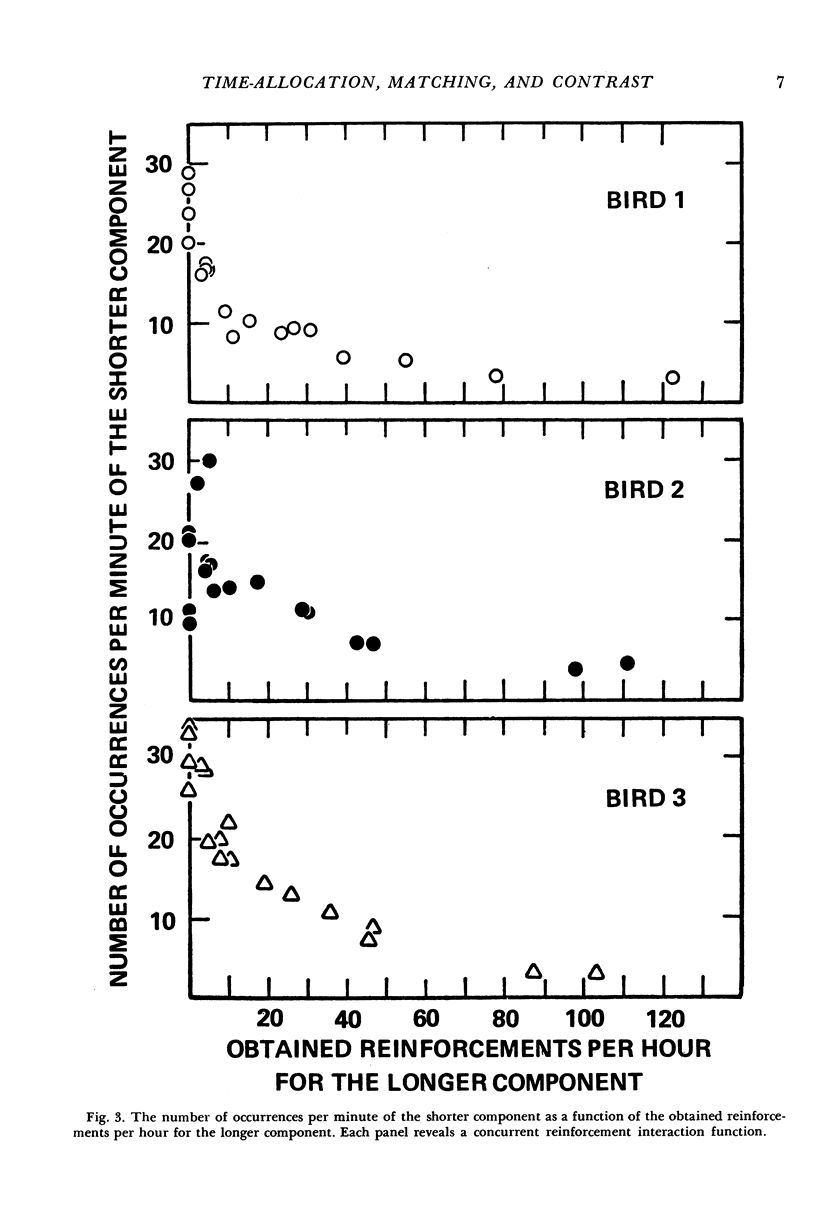
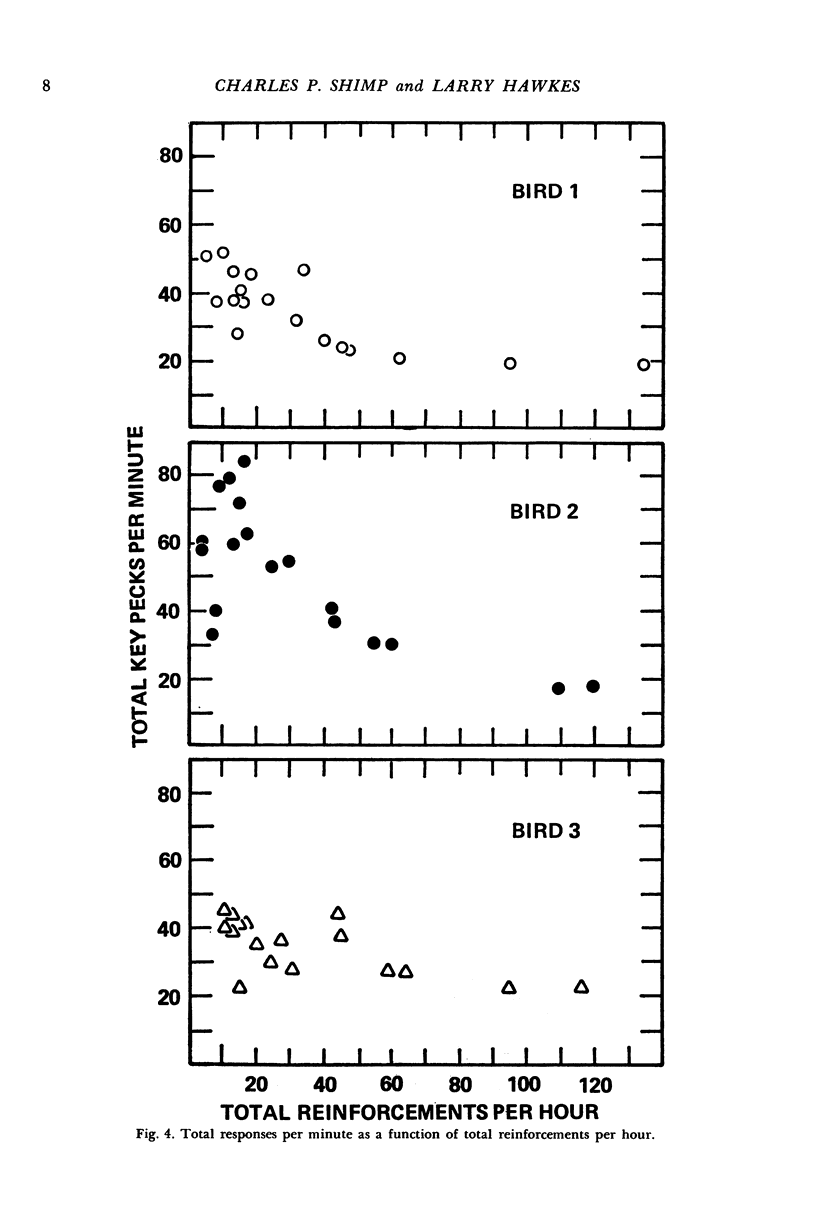
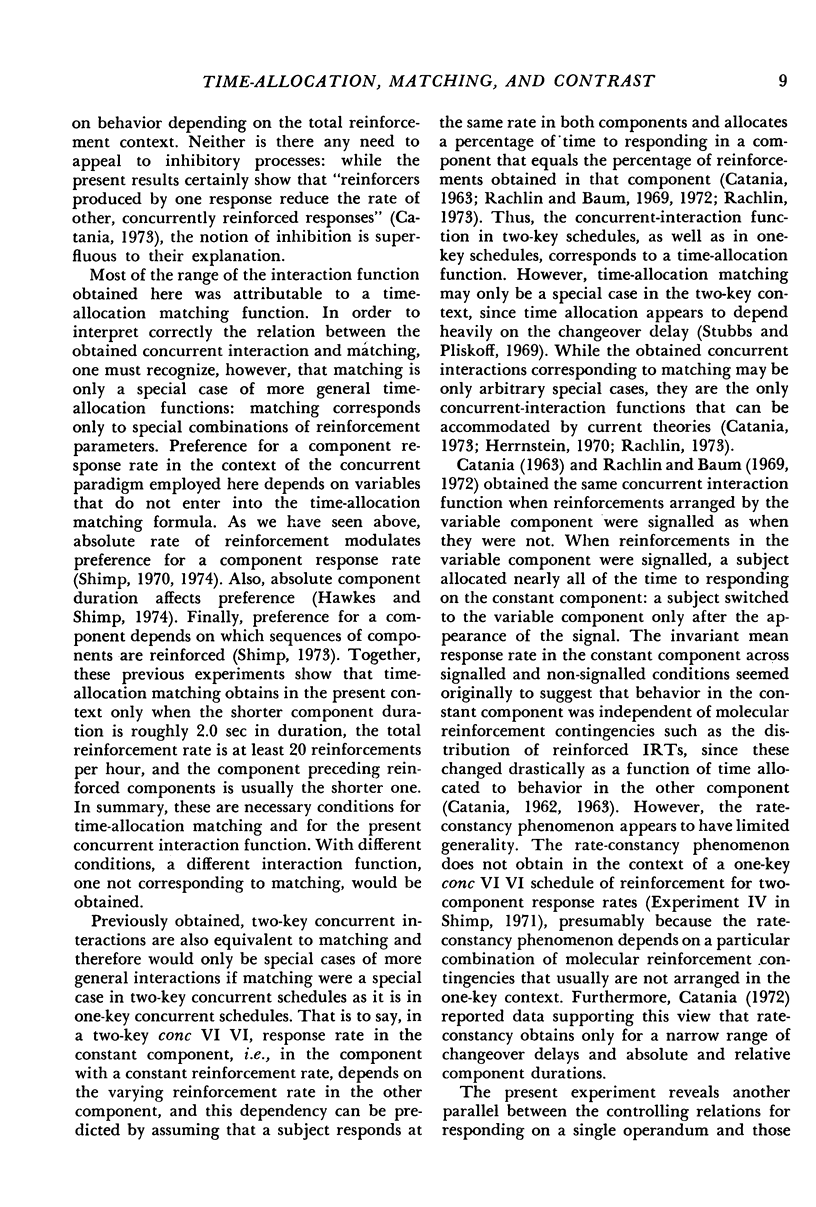
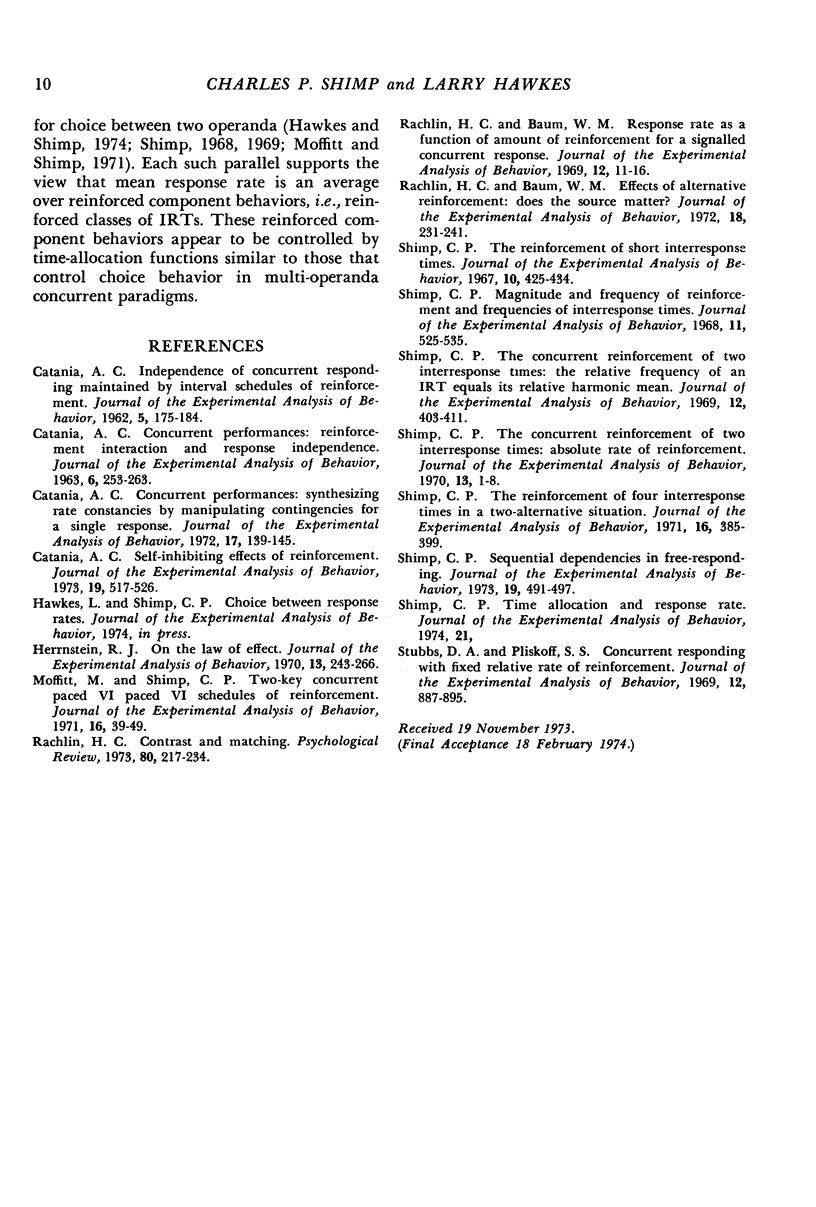
Selected References
These references are in PubMed. This may not be the complete list of references from this article.
- CATANIA A. C. Concurrent performances: reinforcement interaction and response independence. J Exp Anal Behav. 1963 Apr;6:253–263. doi: 10.1901/jeab.1963.6-253. [DOI] [PMC free article] [PubMed] [Google Scholar]
- CATANIA A. C. Independence of concurrent responding maintained by interval schedules of reinforcement. J Exp Anal Behav. 1962 Apr;5:175–184. doi: 10.1901/jeab.1962.5-175. [DOI] [PMC free article] [PubMed] [Google Scholar]
- Catania A. C. Concurrent performances: synthesizing rate constancies by manipulating contingencies for a single response. J Exp Anal Behav. 1972 Mar;17(2):139–145. doi: 10.1901/jeab.1972.17-139. [DOI] [PMC free article] [PubMed] [Google Scholar]
- Catania A. C. Self-inhibiting effects of reinforcement. J Exp Anal Behav. 1973 May;19(3):517–526. doi: 10.1901/jeab.1973.19-517. [DOI] [PMC free article] [PubMed] [Google Scholar]
- Herrnstein R. J. On the law of effect. J Exp Anal Behav. 1970 Mar;13(2):243–266. doi: 10.1901/jeab.1970.13-243. [DOI] [PMC free article] [PubMed] [Google Scholar]
- Moffitt M., Shimp C. P. Two-key concurrent paced variable-interval paced variable-interval schedules of reinforcement. J Exp Anal Behav. 1971 Jul;16(1):39–49. doi: 10.1901/jeab.1971.16-39. [DOI] [PMC free article] [PubMed] [Google Scholar]
- Rachlin H., Baum W. M. Effects of alternative reinforcement: does the source matter? J Exp Anal Behav. 1972 Sep;18(2):231–241. doi: 10.1901/jeab.1972.18-231. [DOI] [PMC free article] [PubMed] [Google Scholar]
- Rachlin H., Baum W. M. Response rate as a function of amount of reinforcement for a signalled concurrent response. J Exp Anal Behav. 1969 Jan;12(1):11–16. doi: 10.1901/jeab.1969.12-11. [DOI] [PMC free article] [PubMed] [Google Scholar]
- Shimp C. P. Magnitude and frequency of reinforcement and frequencies of interresponse times. J Exp Anal Behav. 1968 Sep;11(5):525–535. doi: 10.1901/jeab.1968.11-525. [DOI] [PMC free article] [PubMed] [Google Scholar]
- Shimp C. P. Sequential dependencies in free-responding. J Exp Anal Behav. 1973 May;19(3):491–497. doi: 10.1901/jeab.1973.19-491. [DOI] [PMC free article] [PubMed] [Google Scholar]
- Shimp C. P. The concurrent reinforcement of two interresponse times: absolute rate of reinforcement. J Exp Anal Behav. 1970 Jan;13(1):1–8. doi: 10.1901/jeab.1970.13-1. [DOI] [PMC free article] [PubMed] [Google Scholar]
- Shimp C. P. The concurrent reinforcement of two interresponse times: the relative frequency of an interresponse time equals its relative harmonic length. J Exp Anal Behav. 1969 May;12(3):403–411. doi: 10.1901/jeab.1969.12-403. [DOI] [PMC free article] [PubMed] [Google Scholar]
- Shimp C. P. The reinforcement of four interresponse times in a two-alternative situation. J Exp Anal Behav. 1971 Nov;16(3):385–399. doi: 10.1901/jeab.1971.16-385. [DOI] [PMC free article] [PubMed] [Google Scholar]
- Shimp C. P. The reinforcement of short interresponse times. J Exp Anal Behav. 1967 Sep;10(5):425–434. doi: 10.1901/jeab.1967.10-425. [DOI] [PMC free article] [PubMed] [Google Scholar]
- Stubbs D. A., Pliskoff S. S. Concurrent responding with fixed relative rate of reinforcement. J Exp Anal Behav. 1969 Nov;12(6):887–895. doi: 10.1901/jeab.1969.12-887. [DOI] [PMC free article] [PubMed] [Google Scholar]


